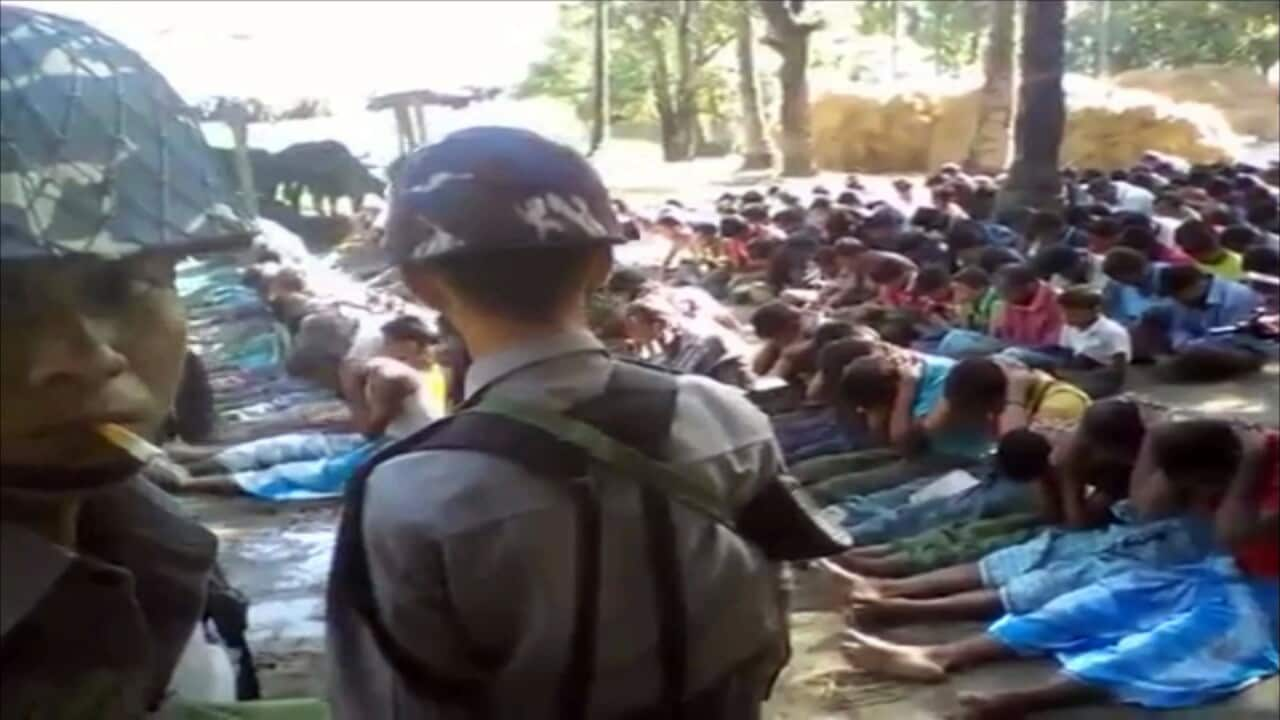Eight months ago the world watched horrified as unspeakable atrocities were carried out against the Rohingya people in Myanmar. Villages were torched, women raped and murdered, men shot and hundreds of thousands more were forced to flee across the border to Bangladesh.
For months now the minority , but I fear more misery could be heaped upon them in the coming months. The monsoon season, which begins in June, could lead to a second humanitarian disaster – one that could be catastrophic.
To accommodate everyone the biggest refugee camp in the world has risen up out of dense forest. It has been an enormous task ensuring a roof over everyone’s heads, building toilets, water wells and other basic infrastructure, providing food to people on a fortnightly basis, and setting up health posts to ensure people can receive frontline care when they need it most.
Welcome to Cox’s Bazar, a narrow strip of land in Bangladesh housing almost 700,000 new refugees, including at least 370,000 children, on top of a local population of more than two million.
There are two government-run refugee camps here; Kutupalong and Nayapara. Deforestation and hill cutting – removing roots binding the soil – were necessary to create space for the families streaming over the border.
The living conditions here are precarious and not built to sustain all seasons. About 200,000 people live in flimsy huts resting on the side of hills or on riverbanks. As the rains begin, many of these homes are likely to be swept away.
About half of all wells that people use for drinking water are also likely to be destroyed. With people packed into every crevice of the Cox’s Bazar settlement, the rest of the camp will struggle to absorb those made homeless.
The network of latrines built as soon as people arrived present another problem. Many are already full, some are on the side of hills. After just a few days of heavy rain, all that waste will mix with flood water and cascade downhill. The result is effectively open sewers in the low-lying areas of the camp.
The rains will make it even harder to build new toilets and will crowd out the existing ones, leading to more open defecation. This brings health risks like water-borne and diarrhoeal diseases, as well as mosquito-borne disease as the water logged camp becomes a breeding ground for pests and disease.
Aid agencies such as Save the Children are working with the government of Bangladesh to do everything possible to mitigate the effects of the monsoon.
We are strengthening facilities such as health posts, learning spaces, and child-friendly spaces, in some cases re-building them from the ground up.
We are also creating new spaces within our health posts to prepare for the predicted outbreak of water-borne diseases, making sure we have the right medicines, sterilisation materials and trained staff in place so we can rapidly respond and save lives.
We are distributing shelter upgrade kits for the most at-risk houses, including families with children with disabilities and women-headed households, and we are improving critical infrastructure such as drains and bridges. It’s critical to also pre-position supplies, so that if roads get cut off we can still get vital medicines and shelter materials to the people who need them most.
How do you protect hillsides against landslides? Volunteers are filling sandbags and stacking them to prop up toilets, houses and access ways.
We must ensure that Rohingya who wish to return to Myanmar can do so safely, voluntarily and with dignity, with unimpeded access to health and education services, the freedom to pursue their livelihood and freedom of movement. And they must have full access to human rights and a pathway to citizenship.
But for those who do not wish to return to Myanmar, they must be given protection and safe refuge by countries elsewhere.
Joe Rafalowicz is the campaigns coordinator at Save the Children Australia and recently travelled to Cox’s Bazar.
These aid agencies are operating in Myanmar, to assist Rohingya refugees:



